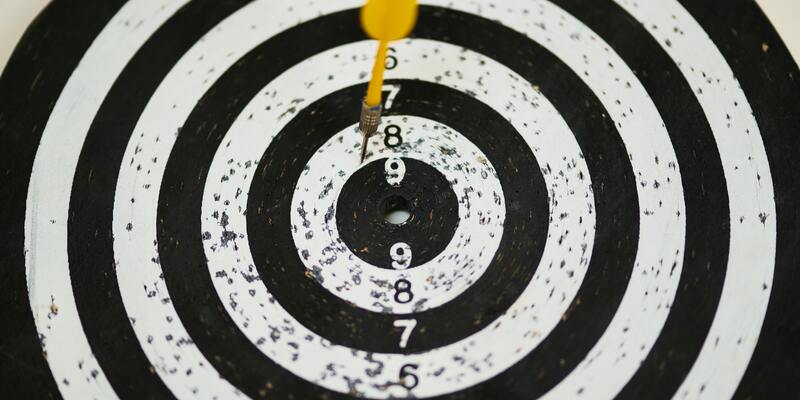FLOWN’s favourite reads on life, learning and beating procrastination


By Eleanor Hope-Jones
•
Nov 21, 2022
Dealing with procrastination is never easy. Luckily, at FLOWN we have a fair few bright and well-read minds to lean on for insights on how to put procrastination in the rear view.
We decided to lend the learnings of some of our best and brightest FLOWN Flow Coaches, and nuzzle in on their favourite reads on how to whip procrastination whenever it rears its niggly little head.
First up is charismatic Flow Coach and confidence whisperer, Victoria Hogg.
Sidestep procrastination to spark your flow
Impro: Improvisation and the Theatre by Keith Johnstone
Why I like it
Impro isn’t about procrastination per se but it does lean being in the moment, and improv, of course, is essentially a moving meditation, like yoga. Improv in many ways is the opposite of procrastination — it’s the epitome of being in a flow state.
Impro is an early book about the concept of improvisation by improv guru Keith Johnstone. It’s insights still totally stand up today. His take on status, spontaneity, narrative and mask - these are all separate chapter headings - is exceptional. Along with US pioneer Viola Spolin (who was forging a similar path a little earlier over in the States, and who helped to birth the improv school and theatre, Second City), Keith created a brilliant blueprint for a lot of contemporary improv practice. You could say he literally wrote the book.
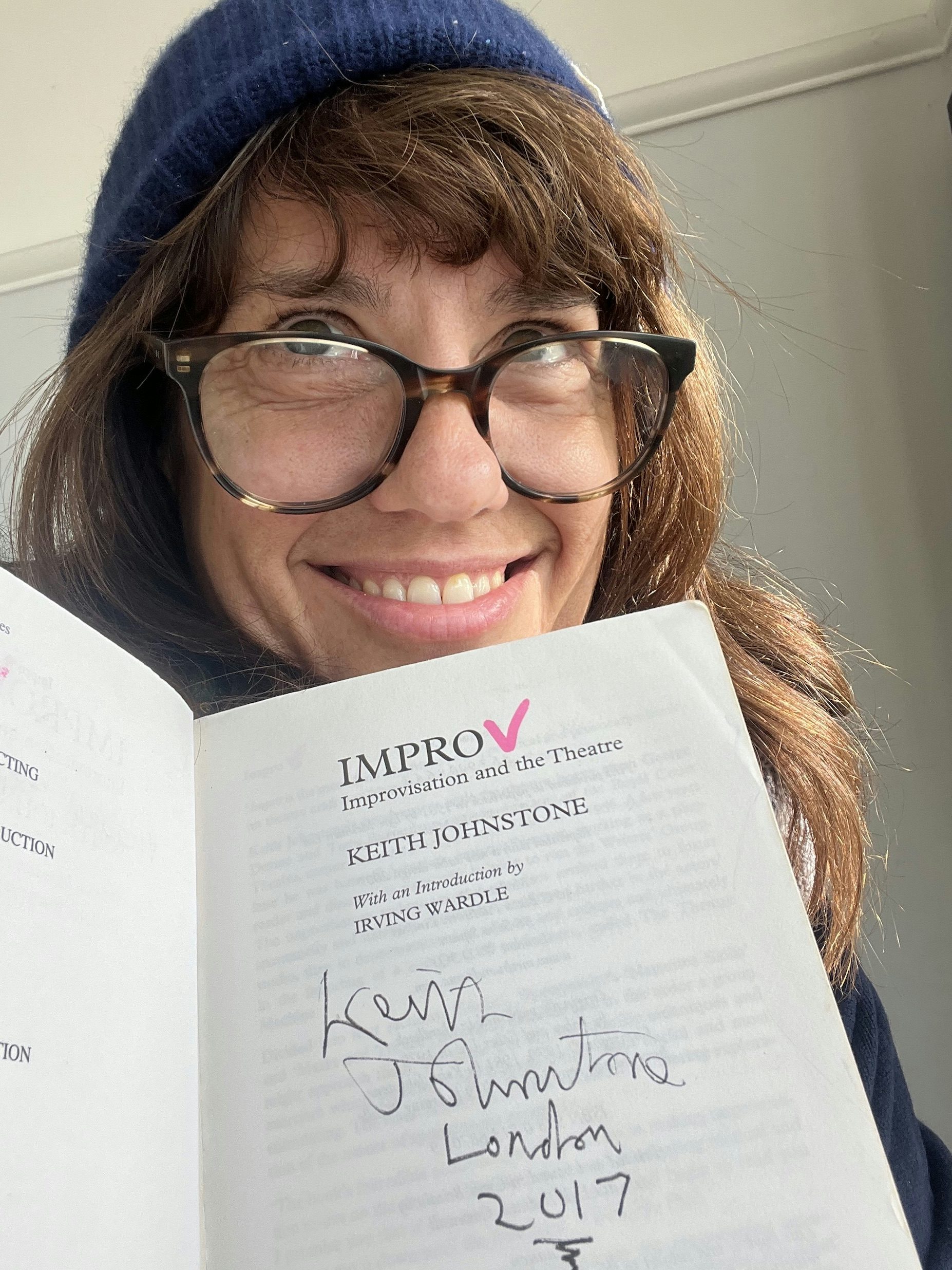
Overview of the book’s vibe
There are lots of examples and walk-through elements alongside pithy notes on failure, teaching practice, and academic and theatrical touch points. Although some of it feels old-fashioned (it was written in 1979 as a culmination of years of teaching and stage direction), it’s still a great entry text to the world of improvisation.
My top pithy takeaway
My favourite thing Keith ever said is: “Be average. Please don’t try your best! It sets the muscles all wrong.” Wise words for those of us who strive for (toxic) perfectionism and find failure painful. He is king of the long game and the ultimate master of his craft.
“Be average. Please don’t try your best! It sets the muscles all wrong.”
The ultimate procrastination buster
Next up, we lean in for the considered thoughts of the ever cool and calm Jack Muir.
Willpower: Rediscovering the Greatest Human Strength by Roy Baumeister and John Tierney
Why I like it
It is a fairly well known book and I like that it has a lot of different stories, case studies and suggestions that can be useful gems for any person if implemented. When it comes to dealing with procrastination, I don’t think you can find a better book that manages to cover so many elements.
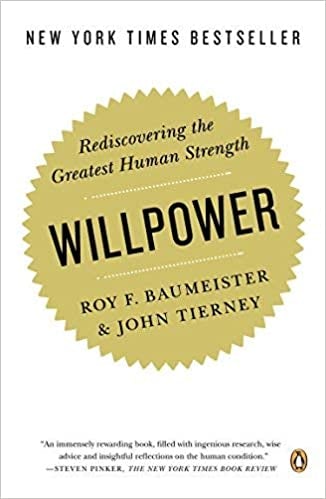
Overview of the book’s vibe
Written by a famous social psychologist, this book dives deep (pardon the pun) into willpower — the research and case studies and the science behind it. It educates, informs and of course gives an array of examples and takeaways for the reader.
My top pithy takeaway
Think about your future self versus your present self. Knowing what motivates you, where you want to get to, and what you want to achieve can help spur action in the now… Oh, and think about death (yeah, I know, but it makes better sense when you read it).
Think about your future self versus your present self. Knowing what motivates you, where you want to get to, and what you want to achieve can help spur action in the now
Kick procrastination to the curb to discover your inner leader
Onto some sparkling insights from head Flow Coach and breath master, Nate Thomas.
Extreme Ownership by Jocko Willink
Why I like it
It’s a totally unique and procrastination busting perspective on life and business through the experiences and mind of a high level former Navy SEAL. I found myself thinking “although this seems so far on one end of the spectrum, I also see exactly how it transfers to a better life.”
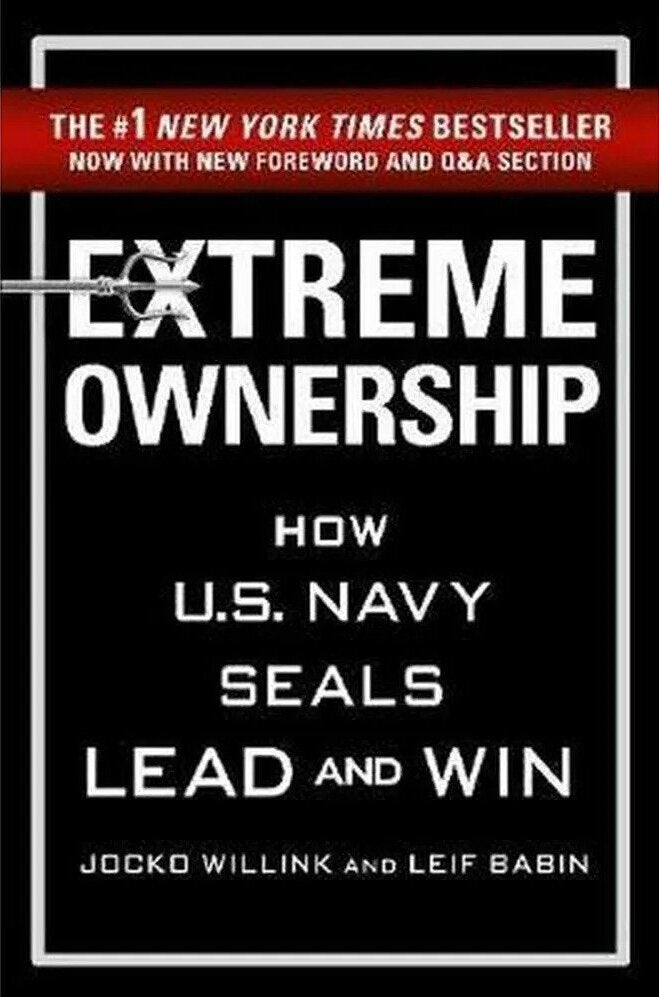
Overview of the book’s vibe
When you take ownership of your actions — your successes and your mistakes — you also take ownership of your life. It makes you realise that mistakes are in fact valuable things, as long as you own them. It’s about learning how to understand the dynamics of a team, and how to be the person in that team that will accept responsibility for the actions of others. Because you recognise that a team is a team is a team. There is no I. Having the confidence to hold your hand up and accept that the buck stops with you opens up the door for others to come in and teach you how to overcome that obstacle in the future.
My top pithy takeaway
I’ve used this approach in learning how to become a team leader at FLOWN. I am open when I don’t know. I lean into trusting myself when I feel that I do know. And I accept when I didn’t know and success was missed.
The book has a simple to understand belief at it’s heart that helps you really recognise that you’re a constant work in progress.
An ultimate guide to wellbeing, mindfulness and the happy life
Solve for Happy by Mo Gawdat
Why I like it
As someone who spends time in the world of wellness, I have to say this book has a totally fresh approach. It targets those who might not resonate with the symbolism that’s often embedded in practices like yoga, meditation, visualisation, mindfulness etc.
Mo’s personal story rips your heart out, and yet the book seems to put it back together for you. I’ve used his Happy List on Flocks to great effect a number of times.
The book helps with procrastination but not in a direct way. It goes deeper by gently helping you to challenge your beliefs. For example, recently, something clicked in my mind whilst reading this book — the longer I continue to blame the person, place, company, experience, location or time for the troubles I have faced, the longer they will plague and have power over me. I must accept the responsibility that I had in those moments and review them with kindness to myself.
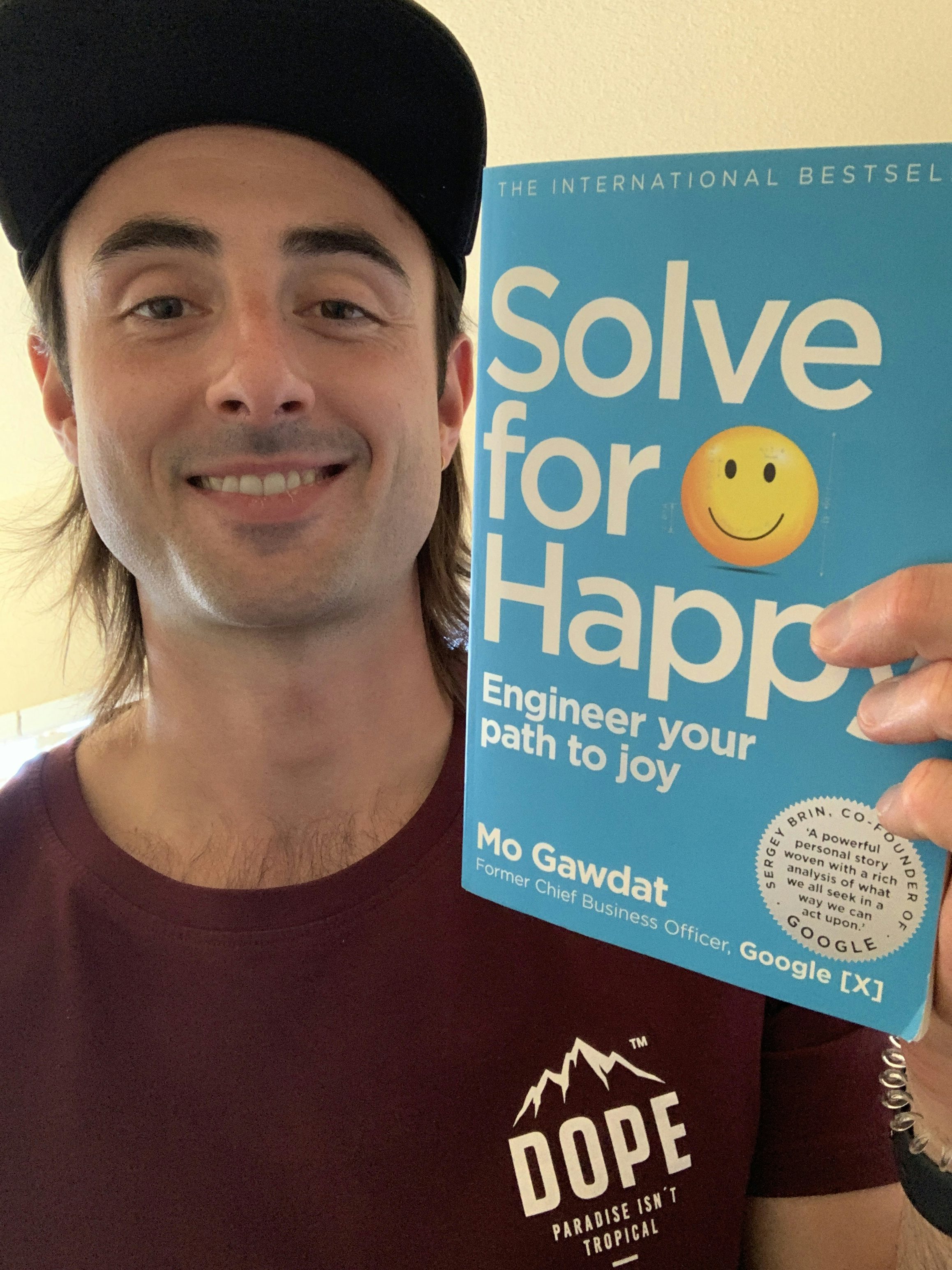
Overview of the book’s vibe
A clear and formulaic approach to understanding that happiness often comes from removing things from our lives, rather than from adding or getting. It’s one of the best explanations of self that I’ve come across.
My top pithy takeaway
Happiness is the result of your expectations of a situation, minus the actual outcome of the situation. The equation balances based on what you expect from life, others and the coincidences that occur through living a conscious life among other conscious beings.
Secondly, we all feel live like we are the star of our own movie. And yet, if that’s so, who is the star in your partner’s movie? Because it’s not us. We are not the star of the movie of life. We are barely a supporting role. Life is not about us, me, I. We are not owed good fortune. We must accept the situations that arise and remove our egotistical analysis in order to find the freedom of happiness.
Happiness is the result of your expectations of a situation, minus the actual outcome of the situation.
Hack your habits to show procrastination the door
Last but never least, our exuberant yogi Flow Coach, Lorna Green reveals her procrastination pick.
The chimp Paradox by Professor Steve Peters
Why I like it
I first read this book at a time when my own irrational behaviours were having a negative impact on every aspect of my life. I knew something needed to change but I had no idea where to even begin.
This book was the first deep dive I ever took into my own psychology. It offered a simplistic model of some complex neuroscience and psychology concepts and although it ultimately doesn’t cover anything that anyone couldn't discover themselves with some self-reflection, the information was presented in a way that allowed me to assess my own behaviour, focus on the long-term, and communicate better with those around me.

Overview of the book’s vibe
The Chimp Paradox is about the complicated and crazy mess that is the human brain. The book is intended to help readers understand the way their minds work. The author has based the book on scientific facts and principles, but simplified them into a workable model for easy use. The simplification involves taking the three parts of the brain (frontal, limbic and parietal), and calling them 'the Human', 'the Chimp', and 'the Computer'.
These different parts, like co-workers in an office, don’t always see eye to eye, and can easily come into conflict with one another. Ultimately the book is a guide on how to navigate these conflicts and misunderstandings.
My top pithy takeaway
There are many juicy takeaways from the book but I would say the words that resonate most with me even today are these:
Your inner monkey will always dangle the next reward in front of you. Don’t let it ruin your long-term happiness. When you achieve something you’re proud of, take a break, celebrate, and learn to appreciate what you have.







